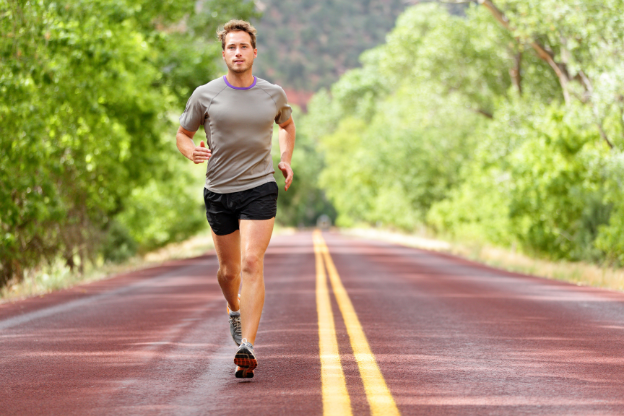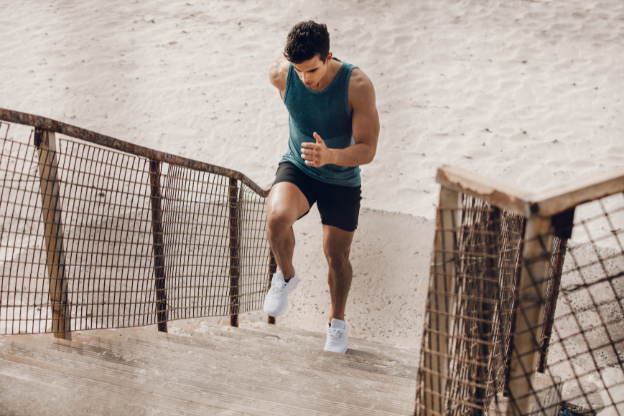
How Hot Weather Affects Your Circulation (and What You Can Do About It)
As the summer heat rises, your body may feel like it's working overtime to maintain balance. One crucial system that can be impacted by hot weather is your circulatory system. Does heat affect blood circulation? Yes, it does! The body's natural response to higher temperatures can lead to changes in circulation, which may affect your physical well-being. In this article, we'll explore how hot weather affects circulation, the science behind it, and how you can support your circulatory health during the warmer months.
Understanding How Heat Impacts Your Circulatory System
The circulatory system, which comprises your heart, blood vessels, and blood, plays a crucial role in regulating body temperature and ensuring that oxygen and nutrients are delivered to all parts of the body. When the weather heats up, your body employs specific mechanisms to help cope with the heat. Let's dive into the physiological processes that occur when the temperature rises.
Vasodilation and Its Effects on Blood Flow
Vasodilation refers to the widening of blood vessels, which happens when the body needs to release excess heat. The skin acts as a cooling mechanism by allowing more blood to flow through the surface, where it can dissipate heat into the air. While this process is effective in cooling the body, it can also lower blood pressure as the expanded blood vessels reduce the blood flow to organs. As a result, the heart compensates by increasing its rate.

This natural cooling response becomes more pronounced in individuals who spend a considerable amount of time outdoors or work in hot environments. Construction workers, gardeners, and athletes often experience these circulatory changes more intensely than those who remain in climate-controlled environments. The body's adaptation to heat can take several days to weeks, which explains why the first few hot days of summer often feel more challenging than later heat waves.
The Sympathetic Nervous System and Temperature Regulation
Your body's sympathetic nervous system plays a crucial role in managing blood flow during temperature changes. When you're exposed to heat, the body sends signals through the nervous system to increase blood flow to the skin while reducing blood flow to non-essential organs, especially the gastrointestinal system. However, the body's ability to regulate blood flow under extreme heat may not be perfect, which is why it's important to stay aware of how heat is affecting your body.
This redistribution of blood flow explains why many people experience digestive discomfort during hot weather. When it's especially warm outside, less blood reaches the stomach and intestines, which can slow down digestion. This may leave you feeling slightly fuller or heavier after eating. Remember to listen to your body and take care of yourself during the hot days!
Age-Related Considerations in Heat Response
Older adults face unique challenges when it comes to circulation and heat exposure. As we age, our blood vessels naturally become less flexible, and our hearts may not pump as efficiently as they once did. Additionally, the body's ability to sense temperature changes and respond appropriately can diminish with age. This means that seniors may not feel thirsty when they need fluids or may not recognize early signs of heat-related circulatory stress.
Medications commonly prescribed to older adults can further complicate the picture. Diuretics, blood pressure medications, and certain heart medications can alter the body's response to heat. These factors combined make it particularly important for older individuals to take extra precautions during hot weather and monitor their bodies for signs of circulatory distress.
The Science Behind Hot Weather and Its Impact on Circulatory Health
Understanding the fundamental science of how heat influences circulation can be beneficial. Recognizing how heat interacts with the body enables you to take proactive measures to avoid complications.
Blood Viscosity and Its Effect on Circulation
Viscosity refers to the thickness or stickiness of blood, which can be influenced by temperature. In the heat, your body loses fluids through sweat, leading to thicker blood. This thicker blood flows more slowly through the circulatory system, placing more stress on the heart and making it more difficult for the body to maintain efficient circulation. As a result, circulation may become sluggish, and the body's cooling mechanisms may struggle to keep up with the heat.
Dehydration and Blood Volume
Dehydration occurs when the body loses more fluids than it takes in, a condition that is particularly common in hot weather. As the body sweats to cool down, it loses essential fluids, which causes a decrease in blood volume. When blood volume is reduced, the heart must pump harder to circulate blood effectively. Staying hydrated by drinking water and consuming electrolyte-rich fluids can help maintain blood volume and circulation.
How to Support Healthy Circulation in Hot Weather
Though hot weather presents challenges for your circulatory system, there are several steps you can take to ensure that your circulatory health remains in good shape.
Hydrate Regularly Throughout the Day
Staying hydrated is one of the most important ways to support healthy circulation during the summer months. When you're hydrated, your blood remains thin and can flow more easily. Aim to drink plenty of water, and consider electrolyte drinks if you're sweating heavily or engaging in physical activity. Avoid sugary or caffeinated drinks, as they can dehydrate the body.
Use Compression Garments for Circulatory Support
Compression socks, stockings, and sleeves are excellent tools to support circulation in the legs. These garments apply gentle pressure, which helps blood return to the heart. For individuals who spend long periods sitting or standing, compression garments can be especially effective at preventing blood from pooling in the legs.
Exercise Regularly and Stay Active

Exercise is one of the most effective ways to maintain healthy circulation. Physical activity strengthens the heart and helps improve blood flow. When you exercise, your muscles contract, helping to pump blood through your veins, which support overall circulation. Aim for low-impact exercises like walking, swimming, or cycling that won't overheat your body but will still encourage blood flow.
Timing Your Outdoor Activities
Strategic timing can make a significant difference in how your circulatory system handles heat exposure. The hours between 10 AM and 4 PM typically present the greatest challenge, but the exact timing varies by geographic location and season. Early morning hours, typically before 9 AM, offer cooler temperatures and lower humidity levels, which put less stress on your circulatory system.
Evening activities after 6 PM can also be more comfortable, though it's worth noting that heat absorbed by pavement and buildings during the day can keep temperatures elevated well into the evening hours. Urban areas, in particular, experience what's known as the "heat island effect," where concrete and asphalt retain heat long after the sun has set.
Creating a Cool Environment at Home
Your living environment plays a crucial role in supporting healthy circulation during hot weather. Air conditioning is ideal, but not everyone has access to central cooling systems. Fans can be effective when used strategically, placing a bowl of ice in front of a fan creates a simple evaporative cooling system that can lower the temperature in a small room by several degrees.
Blackout curtains or reflective window coverings can prevent heat from building up indoors during peak sun hours. Many people don't realize that closing curtains and blinds during the day, then opening windows in the evening when temperatures drop, can maintain significantly cooler indoor temperatures without relying solely on air conditioning.

Elevate Your Legs to Reduce Swelling
Elevating your legs helps improve circulation. When sitting or lying down, try to elevate your legs above the level of your heart for 15–20 minutes a few times a day. This helps the blood return to the heart and prevents it from pooling in the lower extremities.
Consume Foods that Promote Circulatory Health
Certain foods can help improve blood circulation. Antioxidant-rich foods like berries, citrus fruits, and leafy greens help protect blood vessels from damage, while omega-3 fatty acids found in fatty fish like salmon, mackerel, and sardines can reduce the risk of circulatory problems. Beets are another excellent choice, as they help dilate blood vessels and improve blood flow. Include these foods in your diet for optimal circulatory health.
Conclusion
Hot weather affects your circulatory system in several ways, including dilating blood vessels and causing dehydration, both of which can impact circulation. By understanding the science behind these changes and taking proactive steps, such as staying hydrated, wearing compression garments, and maintaining an active lifestyle, you can support your circulatory health throughout the summer months. A few simple adjustments can help you enjoy the heat while keeping your body in optimal condition.
Frequently Asked Questions
-
How does heat affect blood pressure?
Heat can cause a temporary drop in blood pressure due to the dilation of blood vessels. Staying hydrated and avoiding prolonged exposure to direct heat can help maintain stable blood pressure.
- What foods are best for improving circulation?
Foods that support circulation include leafy greens, citrus fruits, fatty fish rich in omega-3 fatty acids, beets, and nuts. These foods contain essential nutrients that promote healthy blood vessels and enhance blood flow, which can aid in circulation during hot weather.
- Is it safe to exercise in hot weather?
Exercising in hot weather can be safe if you take precautions. Drink plenty of water, avoid peak heat hours, and listen to your body. If you feel dizzy or fatigued, stop exercising immediately and rest in a cool place.
Compartir











